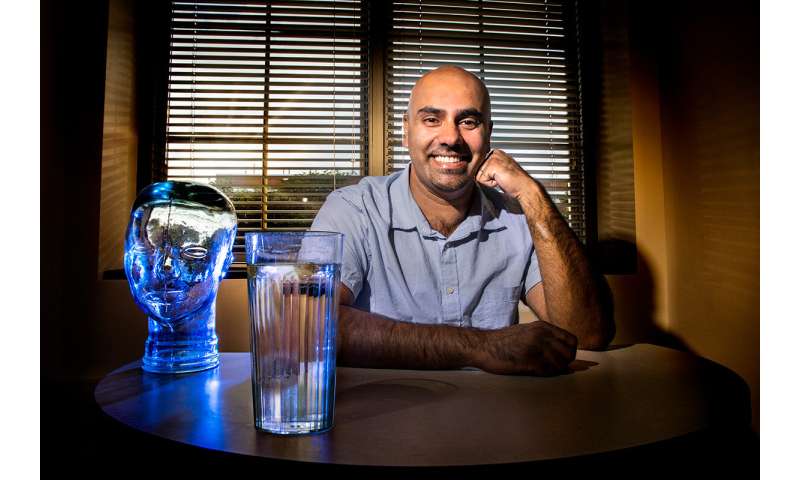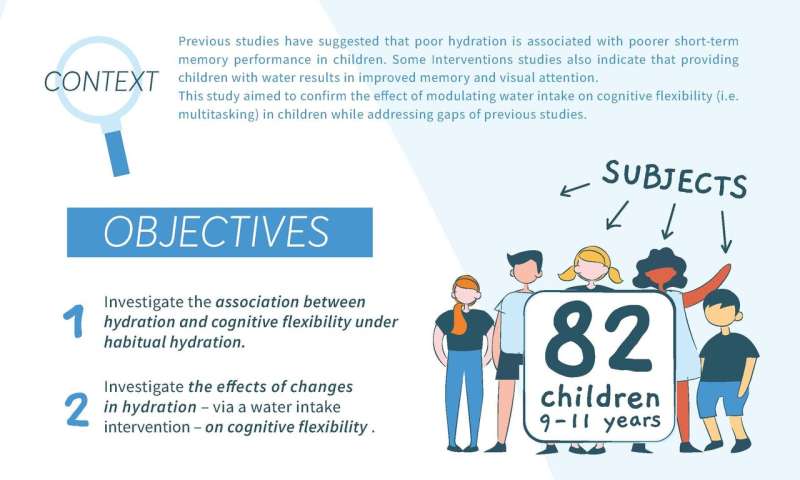
Drinking water not only keeps children hydrated, but also increases their ability to multitask, suggests a new study by researchers at the University of Illinois and their collaborators.
After drinking more water for four days, nine- to 11-year-old children were more hydrated and had faster reaction times on a task-switching test, the researchers reported in The Journal of Nutrition.
“Recent urine biomarker data has indicated that over half of the children in the United States are probably inadequately hydrated,” said study leader Naiman Khan, a professor of kinesiology and community health at Illinois. “We’ve studied dietary effects on children’s cognition for a long time, but the opportunity to promote cognitive function in children with water intake is very important. Children are at a higher risk of involuntary dehydration: They depend on adults to recognize their needs and provide them with water.”
Khan’s group, in partnership with professor Charles Hillman at Northeastern University, studied 75 children in central Illinois. They compared the children’s urinary hydration and cognitive performance at their normal baseline levels, after drinking only half a liter of water a day for four days, and after drinking 2.5 liters of water each day for four days.
“This is the first study to our knowledge that has manipulated water intake over several days and measured changes in cognitive performance among children,” Khan said. “It’s also one of the first studies to use all the measures of urine hydration that are available, including osmolality, specific gravity and color.”

Children with higher baseline hydration performed better on a task-switching activity designed to measure cognitive flexibility. In addition, the children collectively performed better and had faster reactions on the task-switching test after drinking more water, although they showed no difference on tests designed to measure attention and inhibition.
“Children who were better hydrated tended to have greater ability to multitask and faster reaction times, and children who increased their water intake also increased their ability to multitask,” Khan said. “That tells us that the benefits of water may be selective for cognitive processes associated with multitasking.”
After drinking more water for several days, the children’s hydration improved—as was expected. However, many of the children had the same or only slightly different values in urinary markers of hydration in the low-water condition as they did at their baseline. This indicates that they may be underhydrated in their everyday activities, which is concerning, Hillman said.
“Such findings suggest that childhood health behaviors, such as being properly hydrated, may benefit complex cognitive operations including working memory and cognitive flexibility. Given that these aspects of cognition underlie academic achievement, it is interesting to think about low-cost lifestyle interventions, such as increasing water intake, to benefit cognitive and brain health as well as effective functioning throughout the school day,” Hillman said.
Khan said the researchers hope to further explore the relationship between hydration and cognitive performance in children by using brain imaging in future studies to see which neural networks benefit most from water consumption. They would also like to study hydration’s relationship to other mental tasks.
Source: Read Full Article
